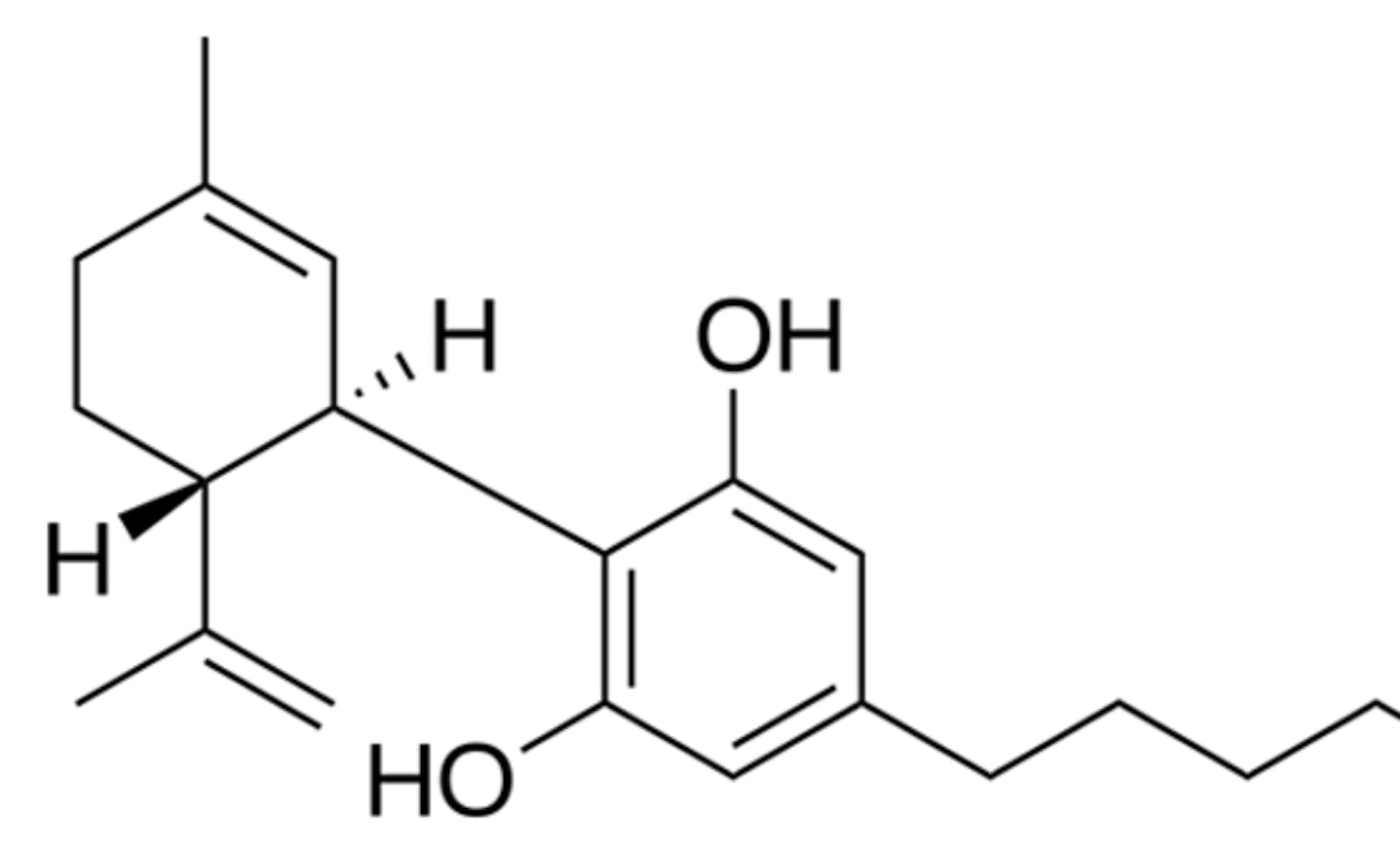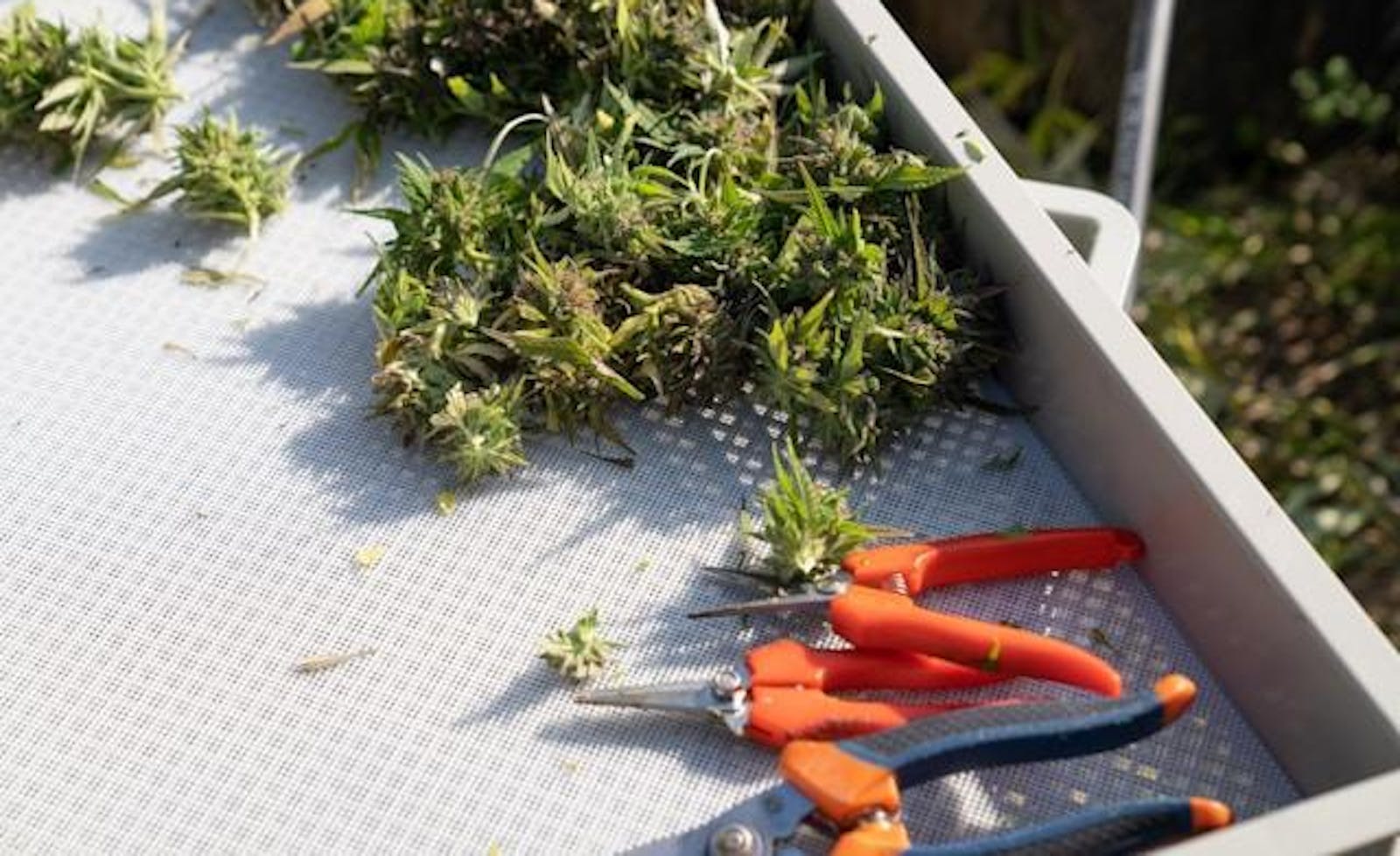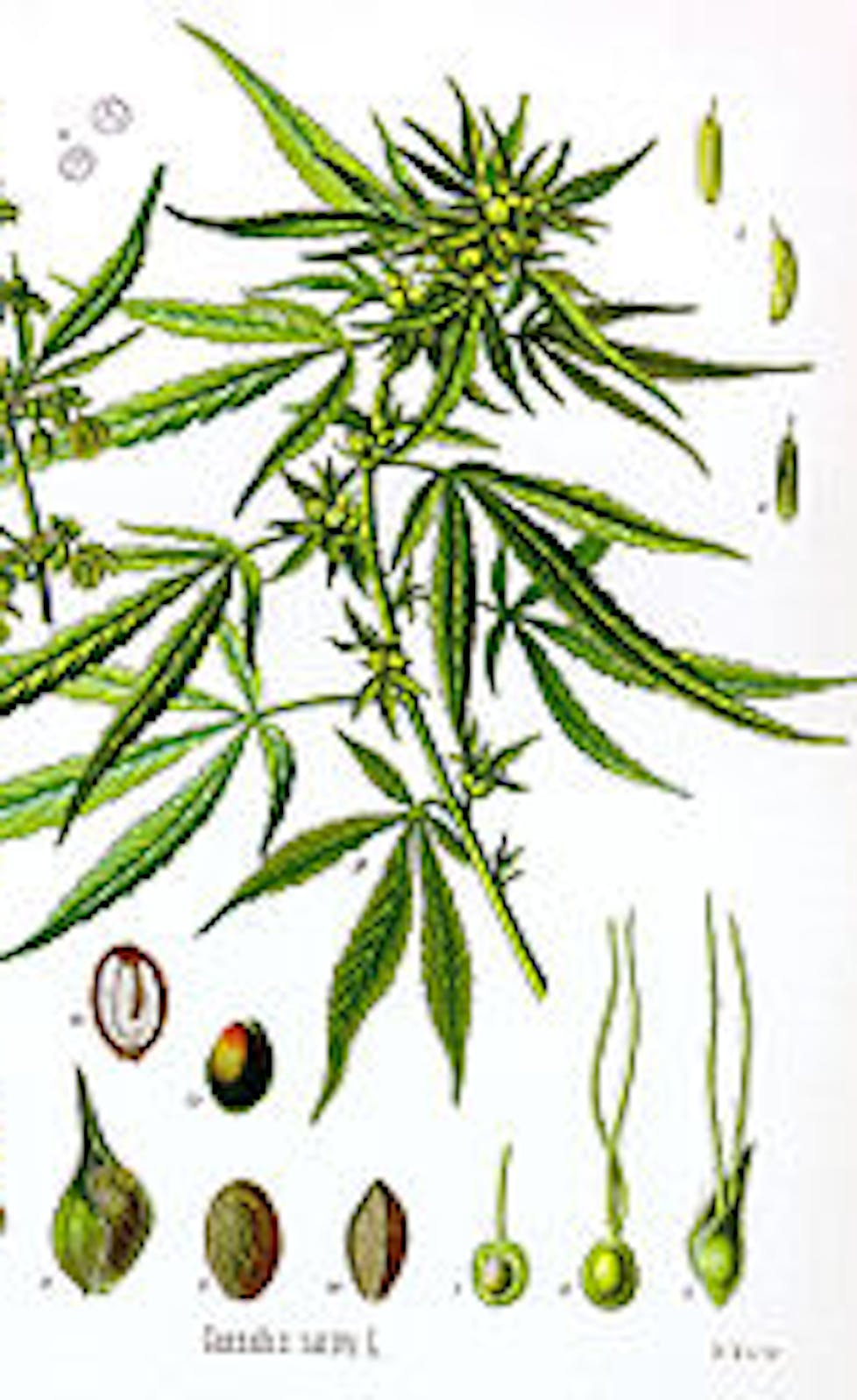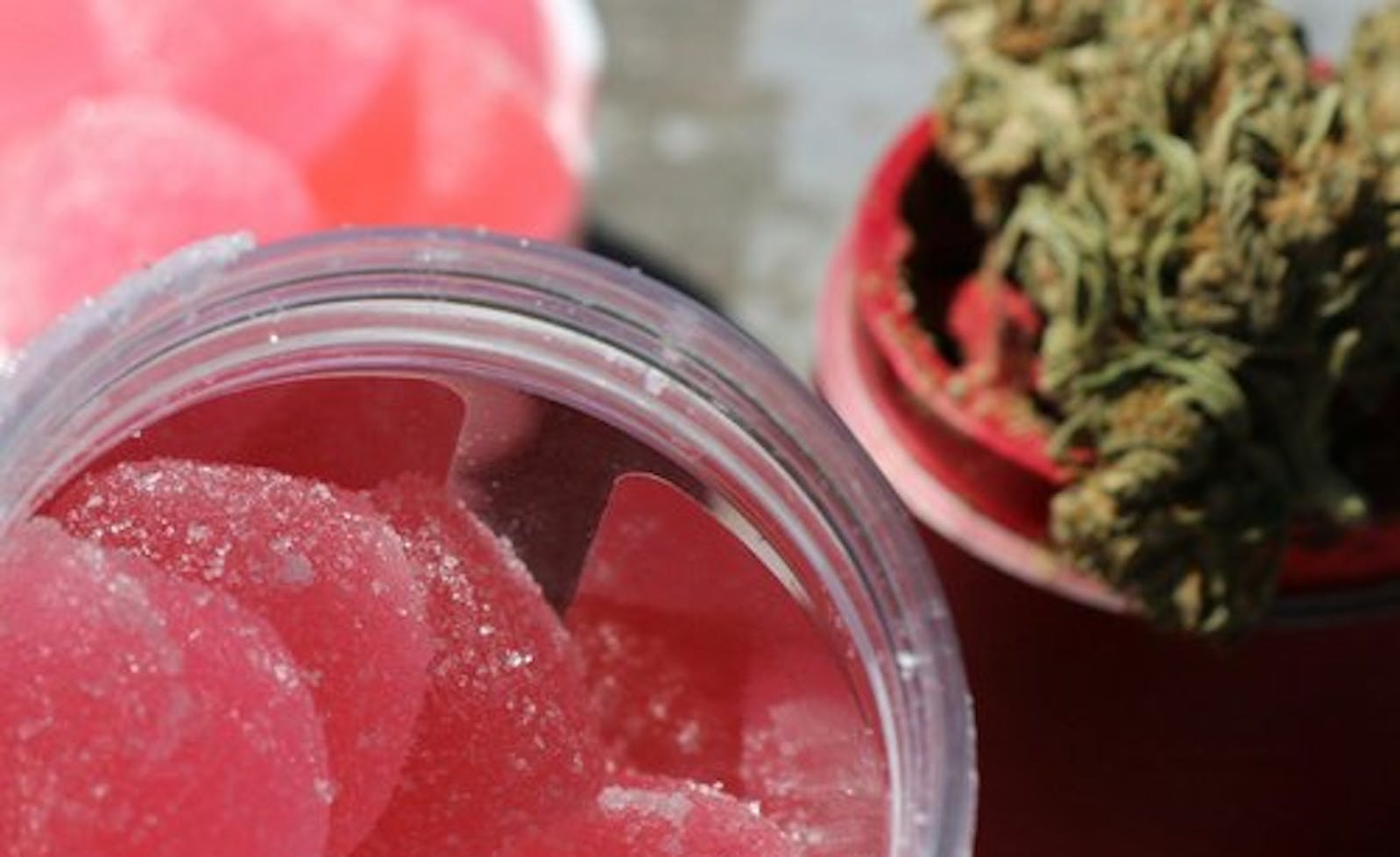What Is CBD? Types, Uses, and Effects

We understand that CBD products are new to a lot of people. Figuring out where to start can be daunting, especially with the amount of misinformation out there. At Apotheca, we want to help you find the best natural products to support your health and wellbeing. We’ve put together a quick guide that answers some of the most common questions we receive from first-time customers. We hope this gives you a good place to start as you begin your journey to better wellness with us.
What is CBD?

Cannabidiol (CBD) is a naturally occurring compound found in the cannabis sativa plant. It is one of over 100 cannabinoids identified in the plant. Unlike THC, another well-known cannabinoid, cannabidiol inhibits the psychoactive effects typically associated with cannabis use. As a result, CBD products are commonly used for various applications without causing a "high."
Comparing CBD to Other Cannabinoids
CBD, or cannabidiol, is one of many cannabinoids found in the cannabis sativa plant. While each cannabinoid interacts with the body differently, understanding these differences can help you choose the right product. Here’s a brief comparison of CBD with other notable cannabinoids:
- Delta 8 THC: Delta 8 THC is a psychoactive cannabinoid similar to Delta 9 THC but is known for producing milder effects. Unlike CBD, which is non-psychoactive, Delta-8 THC can produce a subtle "high."
- Delta 9 THC: Delta 9 THC is the primary psychoactive component in cannabis, responsible for the "high" associated with cannabis-derived products. It directly binds to CB1 receptors in the brain, unlike CBD, which interacts indirectly.
- THC-V (Tetrahydrocannabivarin): THC-V is a lesser-known cannabinoid that interacts with both CB1 and CB2 receptors. It’s distinct from both CBD and Delta 9 THC in its effects and chemical structure.
- HHC (Hexahydrocannabinol): HHC is a hydrogenated form of THC, which gives it a different chemical structure. Unlike CBD, which is non-psychoactive, HHC may produce psychoactive effects similar to THC.
- CBG (Cannabigerol): CBG is often referred to as the "mother of all cannabinoids" because other cannabinoids, including CBD and THC, are derived from CBGA (the acidic form of CBG). Unlike CBD, which is more abundant, CBG is typically found in smaller quantities in the cannabis sativa plant.
- THCA (Tetrahydrocannabinolic Acid): THCA is the non-psychoactive precursor to THC. It becomes psychoactive only when heated, converting to THC. This makes it different from CBD, which does not require such activation and remains non-psychoactive in all forms.
- CBN (Cannabinol): CBN is typically found in older cannabis plants and has mild psychoactive properties. While CBD does not cause drowsiness, CBN is often associated with more sedative effects.
Will CBD Get Me High?
No, CBD products will not produce a high. The euphoric high associated with marijuana is the result of THC. The key difference between CBD and THC lies in their interaction with the body's cannabinoid receptors. While THC binds directly to CB1 receptors in the brain, CBD interacts differently. Unlike THC, CBD is not psychoactive.
By legal definition, hemp contains 0.3% or less THC by dry weight. This level isn’t significant enough to produce the side effects or severe adverse effects that might be associated with marijuana (for reference, testing in 2017 shows the average marijuana plant has 42 times more THC than hemp).
At Apotheca, we require all of our partner companies to submit third-party laboratory tests confirming their products have 0.3% or less THC. If that threshold is still a concern for you, we offer a wide range of THC-free products.
Are CBD Products Legal?
The short answer is yes. All the CBD products you’ll find on our website are legal under United States federal law. That is because we source products grown from hemp plants.
Cannabis sativa is a plant grown all over the world. It is divided into two categories: marijuana and hemp. The Agriculture Improvement Act of 2018, also known as the Farm Bill, legalized the cultivation of hemp in the United States, provided it contains no more than 0.3% THC by dry weight. This legislation allows manufacturers to sell hemp-derived CBD products across the country, as long as they comply with the Controlled Substances Act.
However, there are some cities, counties, and states where CBD and hemp products are banned or restricted. It is always a safe bet to check local regulations before buying CBD products.
What Does CBD Do?

The science behind the effects CBD has on the body is still relatively new. We know cannabinoids interact with a system in the body called the endocannabinoid system—but that system was only discovered in the 1990s. This time constraint alone means it is not nearly as well-understood as other bodily systems like the nervous system and digestive system.
CBD's Interaction with the ECS
The endocannabinoid system essentially works as your body’s thermostat: it keeps a number of functions like mood, temperature, and inflammation at a happy medium. When something falls outside a perfect medium zone—for instance, if you're too hot or too cold—the endocannabinoid system kicks in to bring you back to equilibrium.
The ECS consists of three main components: endocannabinoids, enzymes, and cannabinoid receptors. Endocannabinoids are molecules naturally produced by the body that bind to these receptors, while enzymes break down these molecules once they've fulfilled their role. The cannabinoid receptors—namely CB1 and CB2—are found throughout the body, including in the brain, immune system, and peripheral organs.
Role of CB1 and CB2 Receptors
The CB1 receptors are mainly located in the central nervous system and are involved in regulating mood, memory, and pain perception. CB2 receptors, on the other hand, are more abundant in the immune system and influence inflammation and immune responses. By interacting with these receptors, CBD use may support various bodily functions, though clinical trials are ongoing to fully understand these mechanisms.
What is CBD Used For?

Hemp has had a part in folk medicine practices around the world for thousands of years. The first recorded use of medicinal hemp dates back to roughly 2300 B.C.E. in China—when Emperor Shen Nung prescribed hemp for illnesses ranging from gout to malaria. In India, Ayurvedic physicians have used hemp in treating colds, rheumatism, diarrhea, epilepsy, pain, and dozens of other ailments.
People today use hemp-derived cannabidiol for many of the same ailment. While CBD is widely used in dietary supplements and other products, it’s essential to recognize that ongoing clinical trials continue to explore its full range of effects.
The United States Food and Drug Administration (FDA) has not evaluated any of these claims and it is illegal to say a product has any therapeutic benefits without explicit approval from the FDA.
For those interested in exploring how CBD can be used for specific purposes, such as enhancing wellness in pets or improving intimate experiences, you can refer to these articles on the benefits and side effects of CBD for cats and whether CBD can improve your sex life.
What Do All These Words on the Label Mean?
Hemp product labels contain a lot of information, much of it using industry jargon that isn’t commonly understood by customers. Some of it is purely marketing, but other terms directly relate to the type and quality of the product. Here are some of the more common things you’ll come across on labels:
- Full-Spectrum CBD: Full-Spectrum CBD contains all the naturally occurring compounds found in the cannabis plant. This composition allows users to experience the "entourage effect," where these compounds work together to enhance the overall effects of the product. For more details on the differences between full-spectrum and other types of CBD, you can read Full-Spectrum vs. Broad-Spectrum CBD: Know the Difference.
- Broad-Spectrum CBD: Broad-Spectrum CBD is similar to full-spectrum CBD, but with one key difference: it undergoes additional processing to remove all traces of THC. Broad-spectrum CBD still provides the entourage effect, although the absence of THC may slightly alter the overall impact.
- CBD Isolate: CBD Isolate is the purest form of CBD, containing 99% or more of only cannabidiol CBD. During the extraction process, all other plant compounds, including cannabinoids, terpenes, and flavonoids, are removed, leaving behind a crystalline powder or slab of pure CBD. If you're interested in learning more, check out the article Full-Spectrum vs. Isolate CBD to understand the distinctions.
- MG: CBD potency is measured in milligrams of CBD, although the exact measurement depends on the product. For instance, oil tincture packaging will show a high number, between 100 and 5,000mg. This measurement is for the entire bottle, meaning actual doses are much less. To figure out how much CBD is in each dropper, you'll have to do a little math (most droppers are 1ml, and bottles are typically 30ml, so you'd divide the CBD content by 30). Gummies are sometimes labeled per individual gummy, so it’s important to read packaging carefully before consumption.
The type of CBD you choose—whether it's full-spectrum, broad-spectrum, or isolate—depends on your personal preferences and needs. Apotheca offers a selection of CBD products for those looking for this specific form of CBD. You can explore these options further in the CBD Shisha Products Guide.
Which CBD Product is Right for Me?

There are a wide variety of CBD products on the market, and they all have their own advantages and drawbacks. It’s important to decide what you are looking for from cannabidiol, how regularly you plan to use it, and what delivery method makes you the most comfortable.
Here are some of the most common categories of CBD products you’ll find at Apotheca and a primer on how they’re used.
- CBD Oil Tinctures: These are the most common products you’ll see. They come in a number of sizes, strengths, and are blended with many different oils and other ingredients. Oils are typically made from extracted CBD, a carrier oil like hemp seed oil, and essential oils for flavor. Tinctures are typically taken sublingually (placing drops under your tongue) using a dropper built into the product’s cap. Oils are among the most effective at delivering CBD quickly, but some consumers don’t enjoy the taste.
- CBD Salves and Creams: These products are typically blends of CBD extract with shea butter or other common skin care ingredients. They are applied the same as any other cream or lotion, with a small amount rubbed into the skin. Learn more about what CBD topicals are and why you should use them.
- CBD Gummies and Edibles: CBD edibles are eaten like any other food, and are favored by customers who want a slower delivery method with long-lasting effects.
- CBD Vapes: Vaping is a highly effective, rapid way of delivering cannabidiol. Vaporizers are typically easy to use and brands offer both disposable and refillable vape oil cartridges. These devices are well-suited for customers who don't like the process of ingesting tinctures or edibles. While vape cartridges do give an exact measurement of CBD content, it is difficult to know exactly how much you are receiving with each inhalation.
- CBD for Pets: CBD products are also available for pets, often in the form of tinctures and treats. They are formulated to suit the specific needs of animals. If you're considering CBD as a dietary supplement for your pet, make sure you learn first about using CBD oil for dogs and where to buy reputable CBD tinctures for dogs in the USA.
- Raw Hemp: Raw hemp flowers can be purchased and smoked using a pipe, rolled like cigarettes, or used in a dry herb vaporizer. Raw hemp is sometimes preferred by customers who want to avoid industrial processing of any kind and get the product in its natural form. However, it is impossible to determine an exact dose size using raw hemp flowers.
While not CBD, THCA edibles are worth mentioning. THCA is a non-psychoactive cannabinoid found in raw cannabis and offers different properties compared to CBD. If you're exploring other cannabinoids beyond CBD, try THCA Edibles.
Learn More With Apotheca
This guide is only a short introduction to CBD products, but we hope it answered enough of your questions to get you started. At Apotheca, we want you to make the most informed, responsible choice you can regarding what you put in your body. We’ll be using our blog space to bring you important research, history, and the latest news on CBD products. We are excited to share our knowledge and help you make the best decisions when it comes to your own wellness.
Beyond CBD, we also offer a diverse range of products to support your wellness journey:
- Kratom Products: Explore our selection of kratom for sale, a natural herb used in various cultures.
- Mushroom Supplements: Discover the benefits of medicinal mushrooms with our range of mushroom products.
- Accessories: Find the right tools for your needs in our accessories section, including items for consuming CBD flower, CBD cartridges, and more.
- CBD for Pets: We also offer CBD products for pets, allowing you to extend the potential benefits of cannabidiol to your animal companions.
Visit Apotheca to explore our full range of products and continue your journey towards informed well-being.


